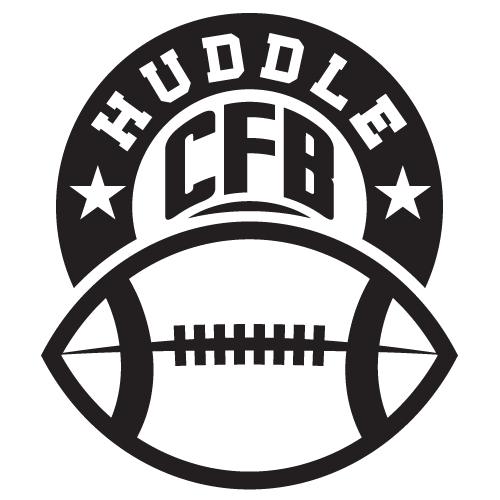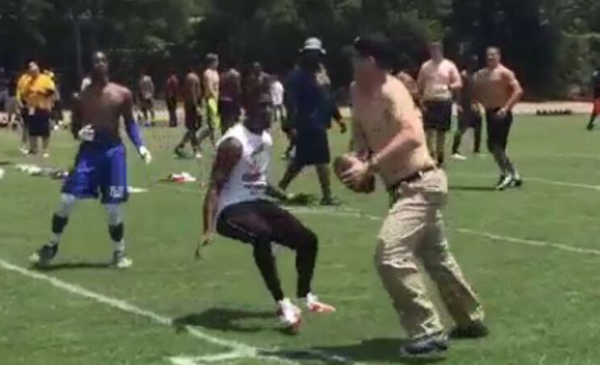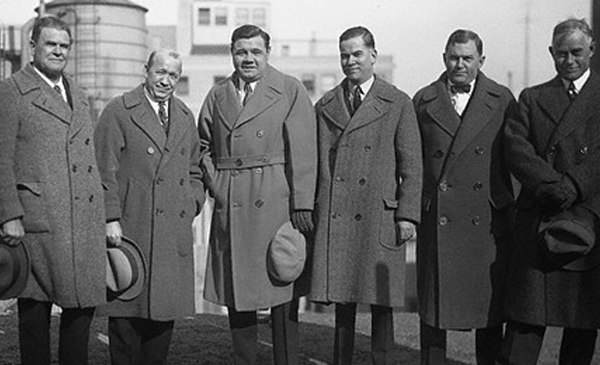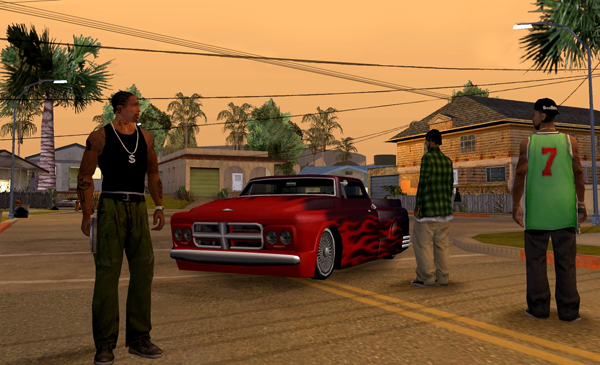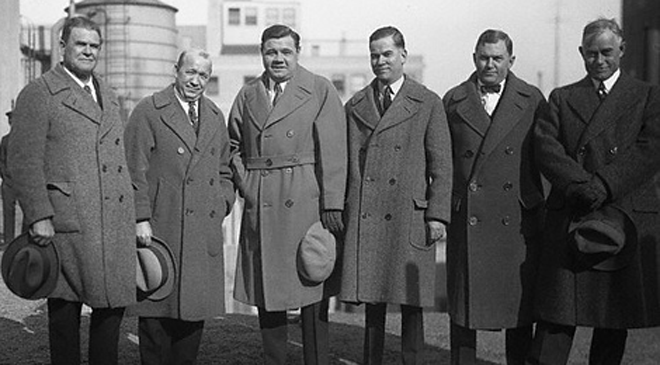Jim Harbaugh’s latest target of Twitter derision surpassed the barbs lobbed when SEC coaches criticized Michigan’s satellite camps.
But when Harbaugh responded to misinterpreted comments Ohio State athletic director Gene Smith made regarding the Wolverines’ spring break trip to Florida, the head Michigan Man’s retort went beyond playful pot-stirring. Harbaugh got personal and mean when he referenced Smith’s support of fired Buckeyes head coach Jim Tressel in 2011.
Good to see Director Smith being relevant again after the tattoo fiasco. Welcome back!
— Coach Harbaugh (@CoachJim4UM) March 23, 2016
The connectivity and immediacy Twitter and other forms of media provide simplify the process of trash talk. However, the concept of unbridled hatred in college football predates Twitter by at least a century.
In this week’s 5 For Friday, CFB Huddle pays homage to rivalries that transcend a mere desire to win. This isn’t Bo Schembechler vs. Woody Hayes, coaches with fierce on-field competition but mutual respect.
This isn’t even Steve Spurrier taking shots at Ray Goff or Phil Fulmer — though either might qualify.
No, 5 For Friday spotlights pure hate.
FIELDING YOST AND KNUTE ROCKNE
The concept of “Michigan Man” evolved over time to invoke images of someone who competed hard, but always did so with respect. Harbaugh’s brief tenure and the Wolverine fan base’s embrace of him may shatter that image, but the Michigan Man concept was never born of such virtue.
Had original Michigan Man Fielding Yost had access to Twitter, he’d probably have spouted off on everything from Minnesota fans poisoning the Wolverines’ water, to University of Chicago head coach Amos Alonzo Stagg, with whom Yost had an acrimonious relationships.
But the real vitriol would likely be saved for Notre Dame legend Knute Rockne.
ESPN.com’s national reporter Ivan Maisel chronicled the animus between Yost and Rockne in 2012 as the modern incarnation of the Michigan-Notre Dame rivalry neared its conclusion.
Maisel outlines the hostility that bubbled between the two, beginning with an upset victory for the Fighting Irish in 1909 and Yost’s subsequent canceling of the series, and never finding resolution.
WALTER CAMP AND WILLIAM REID
College football might not exist today had Harvard’s William Reid and his circle of supporters not heeded Pres. Teddy Roosevelt’s push for reform. The violence of the early game drew public outcry and university decision-makers considered shutting football down altogether.
Credited as the sport’s “father,” Walter Camp wielded remarkable clout in football circles. He won three national championships at Yale in the 19th Century, and he was rigid in his support of football’s early rules.
Camp’s stature with in the sport put him at the forefront of crafting rules changes, which ensured little would change. Reid headed an opposing committee with support from Roosevelt.
Fiercest opposition to Camp came not so much from Harvard coach Reid himself, as from university president Charles W. Eliot. Republished via the 1981 Journal of Sport History, Eliot wrote the following of Camp:
As the matter stands, Mr. Camp has the matter completely in his hands. He has always controlled
the existing irresponsible committee on rules, and caused it at the start to lay down the principle
that no rule shall be altered without unanimous consent. He seems to be as powerful today as he
ever was at Yale and elsewhere, and would undoubtedly be appointed the Yale member of a new
committee. I should never have had any faith in his superintendence of football reform, inasmuch
as he is directly responsible for the degradation and ruin of the game. The trouble with him seems
to me to be that he is deficient in moral sensibility—a trouble not likely to be cured at his age.
Most of Reid’s rule changes were approved and set the foundation for the modern game.
BARRY SWITZER AND DARRELL K. ROYAL
Barry Switzer’s transformed into something of a goodwill ambassador for college football during his retirement, beloved by internet fans for his fun-loving persona and straightforward discourse. He was also once arguably the most hated coach in sports.
Switzer’s Oklahoma teams could be described as flash-and-brash. The Sooners also had high-profile, off-field incidents that drew scrutiny, and ultimately severe NCAA sanctions at the end of Switzer’s tenure in Norman.
The Sooner teams of the 1980s stood in stark contrast to the clean-cut image Darrell K. Royal cultivated in his two decades at rival Texas. Royal’s tenure ended in 1976, just a few years into Switzer’s head coaching stint at Oklahoma, but the final season produced
Switzer shared his memories with Rick Cantu of the American-Statesman in November 2012, shortly after Royal’s death. The animosity between the coaches included accusations of Switzer’s Sooner staff spying on Longhorn practices.
FRANK KUSH AND THE UNIVERSITY OF ARIZONA
Plenty of coaches espouse hatred for rival programs, manifested in references to “Schools Up North,” dropping the M from Michigan and what-have-you. However, Arizona State legend Frank Kush harbored a very real contempt for the very institution of the University of Arizona.
In a 2005 article, Kush detailed his visceral hate for the Wildcats, and how it impacted his coaching strategy.
“We indoctrinated our kids from the time they were freshmen to hate them (the Wildcats) with a passion,” Kush said. “I wanted them to play that way. I didn’t even want them to think about losing. We weren’t allowed to lose to them.”
Kush’s teams rarely did, and along the way, Arizona State grew into a nationally recognized powerhouse. ASU’s success in the 1970s helped land an invitation to the former Pac-8, which also invited Arizona.
Wildcat fans begrudgingly have Kush’s program to thank for UA’s historic conference move, at least in part.
Much of Kush’s hate stems from the 1968 “Ultimatum Bowl,” the stuff of legend for the Duel in the Desert. But even before Arizona State blasted an Arizona squad that demanded an invitation to the Sun Bowl, a disdain lingered between the universities for reasons Kush called “political, social, geographical, academic.”
UA brass attempted to block the 1958 referendum that turned the teachers college into a state university. Current Sun Devils head coach Todd Graham referenced the ’58 referendum — coincidentally enacted the first year of Kush’s tenure — when I asked him about the significance of the Territorial Cup rivalry last November.
JIM HARBAUGH AND PETE CARROLL
Jim Harbaugh’s shots fired at Ohio State shouldn’t come as a surprise. In his first FBS coaching foray at Stanford, Harbaugh went after the conference’s top dog virtually from the outset.
Harbaugh hyped the Cardinal’s historic, 2007 upset of USC in the Coliseum with the line, “we bow to no man.”
Those five words helped establish the tone between Stanford and USC, and more specifically, Harbaugh and Pete Carroll. The Cardinal’s next visit to the Coliseum spawned another Stanford victory, and the most iconic exchange between the two coaches in their brief time sharing the Pac-10 footprint.
The Harbaugh-Carroll rivalry spilled over into the NFL. A flicker of lasting embers emerged in 2013 when former Harbaugh assistant and current Stanford head coach David Shaw, and former Carroll assistant Steve Sarkisian, traded barbs.
Then the head coach at Washington, Sarkisian accused Shaw’s Stanford team of faking injuries to slow the Huskies’ uptempo offense. Shaw coolly fired back that Stanford didn’t need to resort to such tactics against Oregon.
On the topic of hate, there may be no two fan bases in the Pac-12 that hate each other more than Oregon’s and Washington’s. Invoking the Ducks in such a way to discredit the Huskies had impact.
However, Sarkisian and Shaw quickly patched up their relationship. Harbaugh and Carroll? Not so much.
